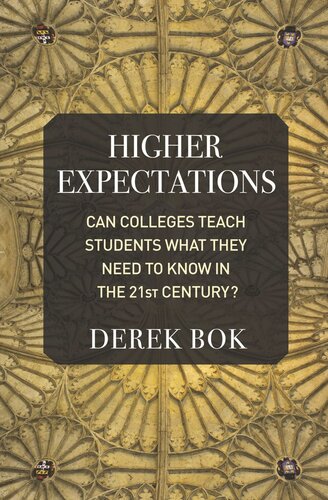

Most ebook files are in PDF format, so you can easily read them using various software such as Foxit Reader or directly on the Google Chrome browser.
Some ebook files are released by publishers in other formats such as .awz, .mobi, .epub, .fb2, etc. You may need to install specific software to read these formats on mobile/PC, such as Calibre.
Please read the tutorial at this link: https://ebookbell.com/faq
We offer FREE conversion to the popular formats you request; however, this may take some time. Therefore, right after payment, please email us, and we will try to provide the service as quickly as possible.
For some exceptional file formats or broken links (if any), please refrain from opening any disputes. Instead, email us first, and we will try to assist within a maximum of 6 hours.
EbookBell Team

5.0
78 reviewsHow our colleges and universities can respond to the changing hopes and needs of society
In recent decades, cognitive psychologists have cast new light on human development and given colleges new possibilities for helping students acquire skills and qualities that will enhance their lives and increase their contributions to society. In this landmark book, Derek Bok explores how colleges can reap the benefits of these discoveries and create a more robust undergraduate curriculum for the twenty-first century.
Prior to this century, most psychologists thought that creativity, empathy, resilience, conscientiousness, and most personality traits were largely fixed by early childhood. What researchers have now discovered is that virtually all of these qualities continue to change through early adulthood and often well beyond. Such findings suggest that educators may be able to do much more than was previously thought possible to teach students to develop these important characteristics and thereby enable them to flourish in later life.
How prepared are educators to cultivate these qualities of mind and behavior? What do they need to learn to capitalize on the possibilities? Will college faculties embrace these opportunities and make the necessary changes in their curricula and teaching methods? What can be done to hasten the process of innovation and application? In providing answers to these questions, Bok identifies the hurdles to institutional change, proposes sensible reforms, and demonstrates how our colleges can help students lead more successful, productive, and meaningful lives.